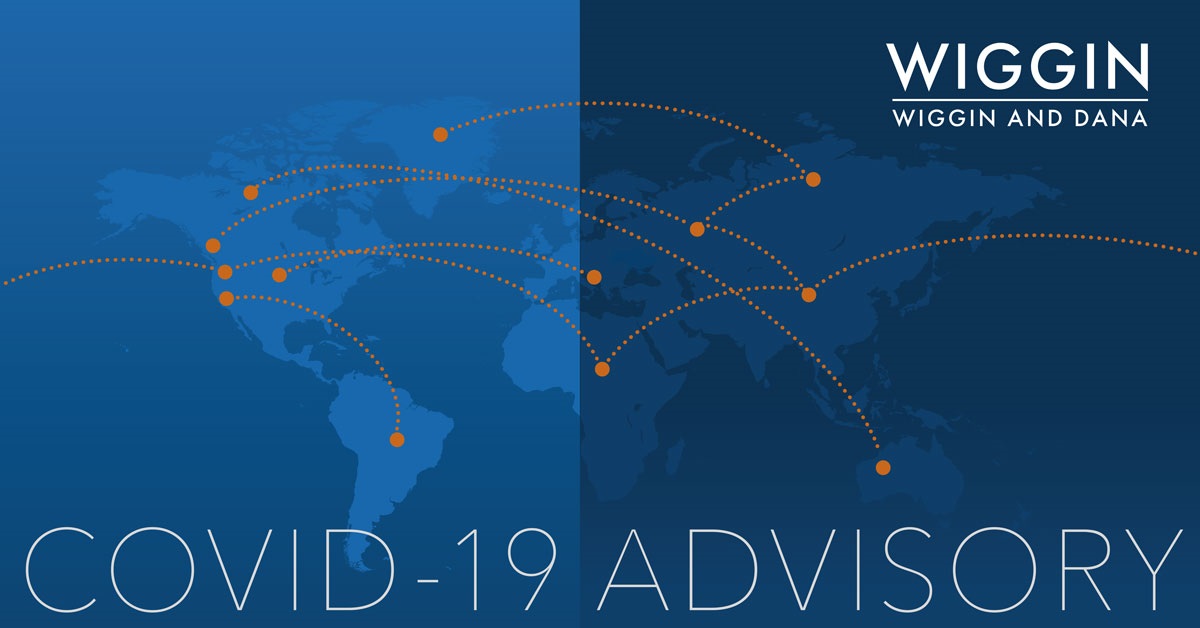COVID-19 Client Resources and Updates

COVID-19 Guidance for Adjusting Work Conditions for H-1B Specialty Occupation Workers
As COVID-19 continues to disrupt businesses across the U.S., many employers must make the difficult decision to suspend workers, reduce hours, and/or initiate layoffs. If H-1B sponsorship is being utilized by an employer, then visa compliance obligations must be carefully reviewed prior to taking any personnel actions that impact employees working pursuant to H-1B visa status (an “H-1B nonimmigrant worker”). Please see related summarized provisions below.
Benching and Nonproductive Work Status
- Employers are not permitted to furlough an H-1B nonimmigrant worker. This type of temporary, unpaid suspension, often considered when business is slow, is termed “benching,” and is illegal.
- Per DOL regulations, employers must continue to pay an H-1B nonimmigrant worker the wage required by the underlying Labor Condition Application (“LCA”) throughout the entire H-1B petition validity period, even “[if] the H-1B nonimmigrant is not performing work and is in a nonproductive status.”
- The requirement to pay the wage remains even if COVID-19 measures such as shelter in place orders or closure of nonessential businesses prohibit an H-1B employee from working because the work cannot be done remotely from home.
- The requirement to pay the wage is waived if the H-1B nonimmigrant worker voluntarily chooses to be in a nonproductive status (e.g., asks to be able to care for a sick relative or is recovering from an injury), but employers may still be subject to other statutes requiring pay or benefits (such as family leave or short-term disability).
- The requirement to pay the wage may or may not remain if an H-1B nonimmigrant worker is in a nonproductive status due to his/her own symptoms. Although being in a nonproductive status due to employee sickness is generally considered a voluntary employee decision, if an employer has a policy prohibiting employees with symptoms or a positive COVID-19 test from entering the worksite and the employee’s work cannot be done from home, then the employer may still be required to pay the wage required by the underlying LCA. The employer must continue to adhere to relevant statutes and may be required to provide benefits or pay accordingly.
- Failure to pay an H-1B nonimmigrant worker the wage required on the underlying LCA during the entire H-1B petition validity period may result in employer fines, liability for backpay, and even temporary disbarment from DOL immigration programs.
Reducing Hours from Full-Time to Part-Time
- If an employer wishes to reduce the working hours of an H-1B nonimmigrant from full-time to part-time employment, then it will be considered a material change to the terms of H-1B employment and will require the submission of a new LCA to the DOL and an amended H-1B petition to USCIS prior to making the change.
Termination
- A bona fide termination of employment must occur for an employer to stop being liable for paying an H-1B nonimmigrant worker the wage required on the underlying LCA during the entire H-1B petition validity period. If the employer initiates termination, then the employer must provide the H-1B nonimmigrant worker with the cost of return transportation to the employee’s home country. The impacted employee will have a grace period of up to 60-days from the date of termination to remain in the U.S. and find another employer to sponsor H-1B status or to request a change of visa status.
Associate Ashley Moore contributed to this briefing.
Wiggin and Dana’s Immigration and Nationality Law and Compliance Practice Group plans to provide additional briefings as more information becomes available. Please contact the practice group Co-Chair, Najia Khalid, at 203.498.4314 or nkhalid@wiggin.com if you have any questions.
Visit Wiggin and Dana’s COVID-19 Resource Center here for additional publications and helpful links on multi-disciplinary topics that are relevant during the current COVID-19 global pandemic.
